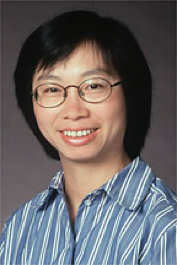 Weihua Zhuang
Weihua Zhuang
University of Waterloo
wzhuang@uwaterloo.ca
Title: Service Provisioning in 5G Communication Networks
The fifth generation (5G) communication networks will accommodate a wide range of emerging services with diverse service quality requirements. The network will integrate a variety of network resources and technologies to support high transmission rate and to enhance quality of experience to mobile users. The traditional one-size-fits-all network architecture cannot efficiently meet the needs of different services, due to the poor scalability, limited adaptability, and inflexibility. Network function virtualization (NFV) enabled by software defined networking (SDN) technology is a promising approach for an agile and flexible 5G networking infrastructure. In this presentation, we will provide an overview of several recent studies for 5G networks, including dynamic radio resource slicing in wireless network virtualization, computing and transmission resource allocation in the core network, and how to establish a customized virtual network topology for multicast services. We will conclude this presentation with a brief discussion of some open research topics.
Biography:
Dr. Weihua Zhuang has been with the Department of Electrical and Computer Engineering, University of Waterloo, since 1993, where she is a Professor and a Tier I Canada Research Chair in Wireless Communication Networks. She is the recipient of 2017 Technical Recognition Award from IEEE Communications Society Ad Hoc & Sensor Networks Technical Committee, one of 2017 ten N2Women (Stars in Computer Networking and Communications), and a co-recipient of several best paper awards from IEEE conferences. Dr. Zhuang was the Editor-in-Chief of IEEE Transactions on Vehicular Technology (2007-2013), Technical Program Chair/Co-Chair of IEEE VTC Fall 2017 and Fall 2016, and the Technical Program Symposia Chair of the IEEE Globecom 2011. She is a Fellow of the IEEE, the Royal Society of Canada, the Canadian Academy of Engineering, and the Engineering Institute of Canada. Dr. Zhuang is an elected member in the Board of Governors and VP Publications of the IEEE Vehicular Technology Society.
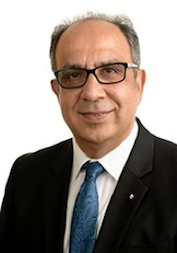 Abbas Jamalipour
Abbas Jamalipour
The University of Sydney
abbas.jamalipour@sydney.edu.au
Title: Wireless Powered and Traffic Control Towards 5G Cellular Networks
Power consumption and spectrum efficiency have been the main focuses in development of new technologies for all generations of wireless cellular communications. With the emergence of bandwidth hungry applications running on large-screen smart phones, a new focus is evolving for future 5G and Internet-of-Things (IoT) networks: Efficient traffic control. Traffic control is becoming a critical design factor in unavoidably ultra-dense cellular and mixed cellular-noncellular wireless network scenarios. Ultra-dense networks are to overcome the problem of increasing per-user capacity and spectral efficiency by making cells smaller and bringing base stations closer to mobile hosts. With the emergence of highly delay sensitive applications such as connected vehicles and driverless cars, we need to make sure that while spectrum and energy are used efficiently, traffic load is also controlled well and the network delay is kept at extremely low levels. In this talk, the three factors of power, spectrum, and traffic load will therefore become the basis for the introduction of critical technologies to facilitate reliable and scalable operation of the 5G and IoT networks.
Biography:
Abbas Jamalipour is the Professor of Ubiquitous Mobile Networking at the University of Sydney, Australia, and holds a PhD in Electrical Engineering from Nagoya University, Japan. He is a Fellow of the IEEE, IEICE of Japan, and the Institution of Engineers Australia; an ACM Professional Member, and an IEEE Distinguished Lecturer. He has authored six technical books, eleven book chapters, over 450 technical papers, and five patents, all in the area of wireless communications. He was the Editor-in-Chief IEEE Wireless Communications, Vice President-Conferences and a member of Board of Governors of the IEEE Communications Society, and has been an editor for several journals. He was a General Chair or Technical Program Chair for a number of conferences, such as IEEE GLOBECOM2018, ICC2014, PIMRC2012, and WCNC2010. Dr. Jamalipour is an elected member of the Board of Governors, Executive Vice-President, Chair of Fellow Evaluation Committee, and the Editor-in-Chief of the Mobile World, IEEE Vehicular Technology Society. He is recipient of a number of prestigious IEEE awards and 15 Best Paper Awards. He is one of the highly cited authors in the field of cellular networks.
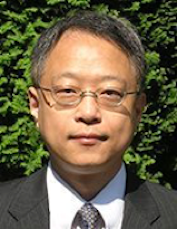 Tao Zhang
Tao Zhang
National Chiao Tung University
taozhang1@yahoo.com
Title: From Autonomous Vehicles to Autonomous Mobility: Challenges and Opportunities
Autonomous vehicles are coming. However, many more fundamental challenges remain to be addressed before self-driving vehicles can become practical in real-world environments. Furthermore, enabling vehicles to drive themselves is only the first step toward making them practical and realizing their full potential for advancing mobility and transportation. Autonomous vehicles will bring profound disruptions to technologies, business models, industry landscapes, policies and regulations. In this talk, I will discuss the challenges we face, the disruptions we may expect, and the opportunities we should seize now for the emerging world of autonomous vehicles.
Biography:
Dr. Zhang co-founded, and is a Board Director for the Open Fog Consortium. He is the CIO and a Board Governor of the IEEE Communications Society. He co-founded and was a founding Board Director for the Connected Vehicle Trade Association. Dr. Zhang holds 50 US patents and has co-authored two books, Vehicle Safety Communications: Protocols, Security and Privacy (2012) and IP-Based Next Generation Wireless Networks (2004), both published by John Wiley & Sons. He co-founded the IEEE Communications Society Technical Sub-Committee on Vehicular Networks and Telematics Applications and served as its Chair from 2013 to 2015. He is a founding steering committee member of the IEEE Symposium on Edge Computing and the IEEE International Conference on Collaboration and Internet Computing. He was a co-founder and founding general chair and steering committee vice chair of the International Conference on Collaborative Communications (CollaborateCom). Tao has been serving on the editorial boards or as a guest editor for numerous leading technical journals. He has served on the industry advisory boards for multiple research organizations, has been an adjunct professor at multiple universities, and a frequent invited speaker at international conferences and industry events. He is now a Chair Professor of National Chiao Tung University.
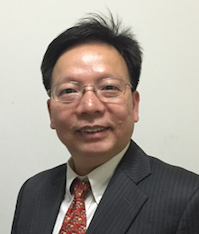 Ying-Chang Liang
Ying-Chang Liang
University of Electronic Science and Technology of China
Title: Enabling Future Wireless Services: From Cognitive Radios to AI-empowered Wireless Networks
Future wireless communications are expected to support the explosive growth of mobile traffic and complex application scenarios. To meet this challenging requirement, wireless networks should be operated in smarter ways in resource utilization, network operation, and service provisioning. There have been extensive studies on cognitive radio in the past two decades, and more recently on deploying AI technologies to wireless networks. This talk will focus on some recent results on how to deploy cognition and AI technologies in the design of cellular and future wireless networks.
Biography:
Dr Ying-Chang Liang (F’11) is a “Thousand Talent Programme” Professor at the University of Electronic Science and Technology of China (UESTC), China, where he leads the Center for Intelligent Networking and Communications (CINC). He was a Professor in University of Sydney, Australia, and a Principal Scientist and Technical Advisor in the Institute for Infocomm Research (I2R), Singapore. His research interest lies in the general area of wireless networking and communications, CR, DSA, Internet-of-Things, artificial intelligence and machine learning techniques.
Dr Liang was elected a Fellow of the IEEE for contributions to cognitive radio communications, and was also recognized by Thomson Reuters (Now Clarivate Analytics) as a Highly Cited Researcher from 2014-2017. He received the Institute of Engineers Singapore (IES)’s Prestigious Engineering Achievement Award in 2007, and the IEEE Standards Association’s Outstanding Contribution Appreciation Award in 2011. He has also received numerous paper awards, with the recent ones including IEEE ICC Best Paper Award in 2017, IEEE ComSoc’s TAOS Best Paper Award in 2016, and IEEE Jack Neubauer Memorial Award in 2014. Dr Liang is Founding Editor-in-Chief of IEEE JSAC – Cognitive Radio Series, and key founder of the new journal IEEE TCCN. He was the Chair of IEEE Communications Society Technical Committee on Cognitive Networks, and served as Guest/Associate Editor of IEEE TWC, IEEE JSAC, IEEE SPM, IEEE TVT, and IEEE TSNPN. He was also an Associate Editor-in-Chief of the World Scientific Journal on Random Matrices: Theory and Applications. Dr Liang was a Distinguished Lecturer of the IEEE Communications Society and the IEEE Vehicular Technology Society, and served as TPC Chair and Executive Co-Chair of IEEE Globecom’17.
 James Kimery
James Kimery
National Instruments
james.kimery@ni.com
Title: Evolving 5G and Beyond
With the release of the first 5G draft in December 2017, what is next? The 3GPP did address many of the key objectives outlined by the industry for 5G with the initial specification. However, there is much work left to do. Expected challenges include commercialization, testing and enabling application ecosystems beyond 4G. In addition, wireless research enters a new phase; one that may radically depart from the path outlined by LTE many years ago. 5G has opened new research vectors in further evolving the physical layer, upper layers and even network topologies to fully fulfill the promise of a truly connected world. This talk will review the road to 5G, the challenges ahead, and introduce possible research areas necessary to advance wireless communications into the next decade.
Biography:
James Kimery is a Director of Marketing for National Instruments SDR and Wireless Research initiatives. In this role, James is responsible for company’s 5G strategy encompassing both research and business initiatives. James also leads NI’s RF and Communications Lead User program which works with leading researchers across the world to accelerate the transition from theory to prototype and deployment. James also manages the company’s software defined radio business including the Ettus Research subsidiary acquired by NI in 2010. In 2014, James chaired the IEEE Globecom industry committee which was held in Austin, Texas. Prior to joining NI, James was the Director of Marketing for Silicon Laboratories’ wireless division. As Director, the wireless division grew revenues exceeding $250M (from $5M) and produced several industry innovations including the first integrated CMOS RF synthesizer and transceiver for cellular communications, the first digitally controlled crystal oscillator, and the first integrated single chip phone (AeroFONE). AeroFONE was voted by the IEEE as one of the top 40 innovative ICs ever developed. James also worked at National Instruments before transitioning to Silicon Labs and led many successful programs including the concept and launch of the PCI eXtensions for Instrumentation (PXI) platform. James was a founding member of the VXIplug&play Systems Alliance, VISA working group, and PXI System Alliance. He has authored over 60 technical papers and articles covering a variety of wireless and test and measurement related topics. James holds degrees from the University of Texas at Austin (MBA) and Texas A&M University (BSEE).
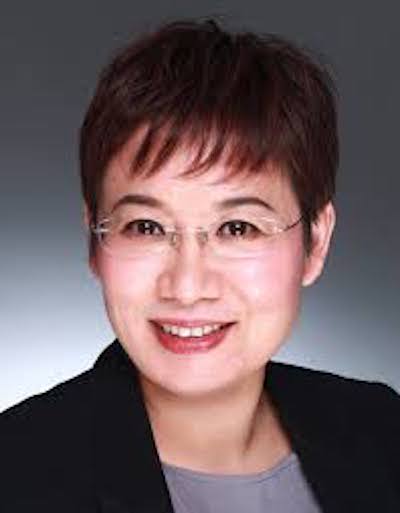 Sumei Sun
Sumei Sun
Communications and Networks Cluster, Institute for Infocomm Research, Agency for Science, Technology, and Research
sunsm@i2r.astar.edu.sg
Title: Cognitive Industrial Internet of Things and 5G MTC’s Role
Industrial internet of things (IIoT), by providing connectivity to machines, robots, and sensors, etc, enables data intelligence-assisted information technology (IT) and operation technology (OT) convergence. In IIoT, multi-disciplinary research on communications, storage, computing and data analysis, control and management, and security, as well as cross-disciplinary system-level design optimization is needed, with built-in autonomous learning and adaptation capabilities.
In this talk, we will start with a brief introduction to IIoT, and then share the IIoT research and design challenges. A design approach will then be proposed to overcome these challenges, under the theme of cognitive IIoT in which the device and the network will build up learning capabilities for context-aware resource, interference, and mobility management, automated fault detection and recovery, and robust connectivity; multi-modal security detection capability is incorporated into the device and network for real-time anomaly and security detection and management. The interactive and cooperative edge-cloud analytics will also be introduced to enable low-latency real-time actionable insight and robust feature engineering. Finally, the 5G’s role, especially the 5G machine-type communications (MTC), from both the massive MTC aspect, and the ultra-reliable low latency communications (uRLLC) aspect, will be discussed.
Biography:
Sumei Sun has been with the Institute for Infocomm Research (I2R) since 1995. She is now Head of the Communications and Networks Cluster, and the lead principal investigator of the Industrial IoT Research Program at the Agency for Science, Technology, and Research (A*STAR) in Singapore, working toward developing competitive solutions to bridge gaps from research to industry in the digital transformation journey.
Dr Sun has authored and co–authored more than three hundred technical papers in prestigious IEEE journals and conferences. She’s inventor and co-inventor of thirty granted patents and over thirty patent applications, many of which have been licensed to industry. She is a Fellow of the IEEE, a Distinguished Speaker in the IEEE Vehicular Technology Society, and Vice Director of IEEE ComSoc Asia Pacific Board (2016-2019). She’s also the Wireless Systems Work Group Chair of Singapore Infocomm Media Development Authority’s Telecommunications Standards Advisory Committee (TSAC) during 2015 – 2018, and Services and Digital Economy Technology Roadmap Workgroup Chair for Future Communications and Internet of Things.


